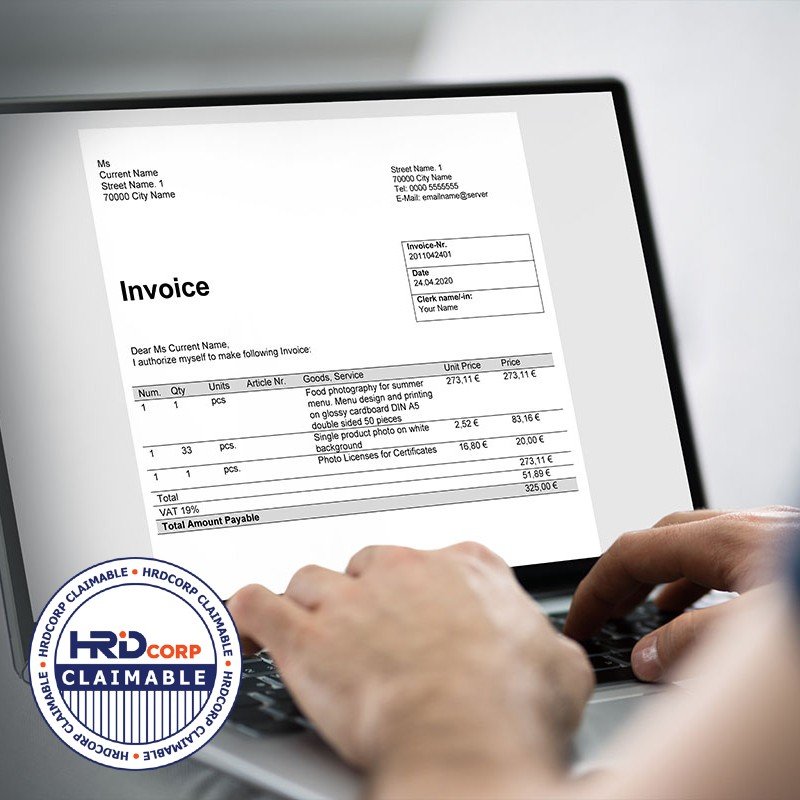
This event has passed.
Masterclass: Streamlining E-Invoicing For Efficiency In Real Estate

Hartamas Training Centre
Level 13, Block A, Menara Prima, Jalan PJU 1/37, Dataran Prima, 47301, Petaling Jaya, Selangor Darul Ehsan.
Speaker
Dr. Navinkumar
Freelance Skill Trainer & Senior Lecturer, Alfa University College
Session Outline
Module 1: Introduction to E-Invoicing
This module provides foundational knowledge on e-invoicing, its relevance, and its impact on the real estate industry.
- About E-Invoice
- Define e-invoicing and its purpose in modern financial systems.
- Overview of e-invoicing in the context of real estate.
- Benefits of Adopting E-Invoice
- Time and cost savings in billing processes.
- Reduced errors and enhanced accuracy.
- Regulatory compliance and traceability.
- Transaction Types
- Explain transaction types common in real estate (e.g., property sales, rental agreements).
- Highlight the types of transactions that benefit most from e-invoicing.
- Scenarios and Types of E-Invoices
- Breakdown different e-invoice types (standard invoices, debit notes, credit notes).
- Scenarios like rental invoicing, purchase of property, etc.
- Implementation Timeline
- Steps for integrating e-invoicing with business processes.
- Compliance timelines, with emphasis on recent industry updates.
- Exemptions from Implementation
- Identify exemptions applicable in the real estate sector.
- Practical examples of exempt transactions.
Module 2: Getting Ready for E-Invoice Implementation
In this module, participants will learn about the end-to-end e-invoicing workflow and models, including detailed steps for each model.
- E-Invoice Workflow (6 Stages)
- Stage 1: Invoice Creation
- Stage 2: Validation
- Stage 3: Transmission
- Stage 4: Acknowledgment
- Stage 5: Storage/Archiving
- Stage 6: Auditing and Compliance Checks
- E-Invoice Models (2 Models)
- Model 1: Invoice Portal
- Model 2: API Integration
- Compare and contrast both models, outlining scenarios when each is ideal.
- E-Invoice Model via Invoice Portal (9 Steps)
- Step-by-step walkthrough of setting up e-invoicing via an invoice portal.
- Instructions on using government or regulatory portals, if applicable.
- E-Invoice Model via API (9 Steps)
- API model setup, including security protocols and API access points.
- Best practices for maintaining data accuracy in the API-based model.
Activity: E-Invoicing Workflow and Models Deep Dive
Duration: 30 minutes
- Objective: To familiarize participants with e-invoicing processes by simulating real-world scenarios.
- Instructions:
- Participants are divided into groups.
- Each group completes an e-invoice setup process using either the Invoice Portal model or the API model.
- Groups present their steps, discussing their workflow choices, benefits, and potential challenges.
Module 3: Configuring the E-Invoicing System for Real Estate
Focuses on customizing the e-invoice process to align with specific real estate business needs.
- System Integration
- Integrating e-invoice systems with existing software (e.g., accounting software, CRM).
- Addressing common issues in syncing financial records with e-invoicing.
- Data Security and Compliance
- Protecting sensitive client and transaction data.
- Complying with data protection regulations.
- Testing and Troubleshooting
- Conducting test runs to ensure smooth operation.
- Troubleshooting common e-invoice errors.
Module 4: Ensuring Compliance and Reviewing Update
Covers the latest regulatory updates and the compliance checks essential for e-invoicing in the real estate industry.
- Regulatory Changes and Industry Updates
- Overview of recent regulatory updates relevant to e-invoicing.
- Case studies on non-compliance and lessons learned.
- Periodic Audits and Record-Keeping
- Best practices for conducting audits.
- Requirements for storing and archiving e-invoices.
- Final Q&A and Knowledge Check
- Participants review main takeaways.
- Questions on specific scenarios or challenges in real estate invoicing.
